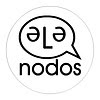 En el último número de Innovate. Journal of Online Education, Marc Prensky da por amortizada su conocida dicotomía entre nativos e inmigrantes digitales de 2001.
En el último número de Innovate. Journal of Online Education, Marc Prensky da por amortizada su conocida dicotomía entre nativos e inmigrantes digitales de 2001.
En “H. Sapiens Digital: From Digital Inmigrants and Digital Natives to Digital Wisdom” propone una nueva etiqueta sobre la que deberíamos enfocarnos: “digital wisdom”. La verdad es que no me atrevo a traducir “wisdom” al español en este contexto:
[...] we can define wisdom as the ability to find practical, creative, contextually appropriate, and emotionally satisfying solutions to complicated human problems (as Solomon famously did with the baby problem).
Prensky apuesta fuerte a la hora de relacionar complejidad tecnológica y desarrollo del cerebro humano en la línea de un “homo sapiens digital” o, con otras palabras, una “digitally enhanced person”. Como es lógico, toma partido por Steven Johnson frente a Nicholas Carr, hasta el punto de considerar que la nueva brecha digital está entre personas que han implementado sus facultades hacia la “digital wisdom” y las que no (independientemente de que sepan manejar la tecnología, por eso distingue entre “digital wisdom” y “digital cleverness”):
People who are digitally clever may be very good at manipulating digital technology, but they do so in a way that does not exhibit wisdom and does not help them become wiser [...] Digital wisdom comes only when digital tools are used to enhance thinking in a positive way.
Digital wisdom means not just manipulating technology easily or even creatively; it means making wiser decisions because one is enhanced by technology.
Un texto a tener en cuenta, después de su carta abierta a Obama proponiendo cambios en el sistema educativo norteamericano.


0 Comments en “Digital Wisdom”
Deja un comentario